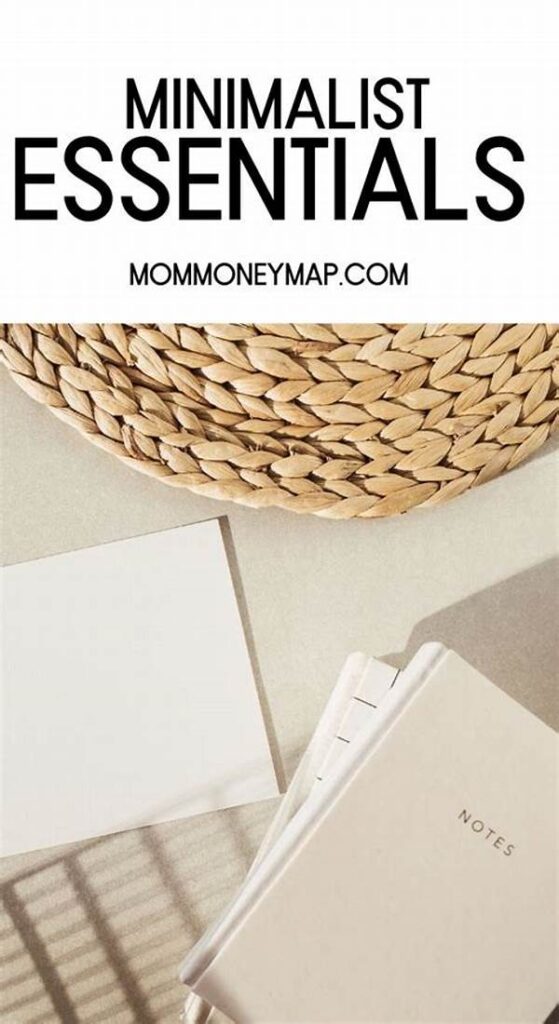Living in today’s fast-paced world often leaves us overwhelmed with our surroundings, particularly in our homes. A cluttered space can easily translate into a cluttered mind, escalating stress levels beyond comfort. Minimalist living comes as a refreshing relief, offering a beacon of simplicity in the chaos. This lifestyle not only involves the physical act of decluttering but also nurtures a mental shift, promoting a serene and purposeful existence. By adopting minimalist living tips for reducing household stress, you transform your environment and ultimately your life, creating a peaceful sanctuary that embraces tranquility over turmoil.
Read More : Top Minimalist Bathroom Designs In 2025
Minimalism is more than a design aesthetic; it’s a way of life that encourages functionality and intentional living. Picture this: walking into your home and being greeted by open spaces, clear countertops, and purposefully placed items. Such environments contribute significantly to reducing anxiety, allowing clarity and focus to prevail. The art of letting go becomes infectious, spreading from your living space to your mental space, leaving you invigorated and stress-free. Now, let us delve into how minimalist living can be your secret weapon against household stress, wrapped in humor, creativity, and a pinch of marketing flair.
Imagine having fewer items to maintain or dust, giving you extra time to indulge in your passions and pursuits. Studies show that uncluttered environments improve decision-making skills and promote mental well-being. Testimonials from minimalists around the globe boast of improved health, better sleep, and newfound joy in everyday experiences. So, are you ready to embrace these minimalist living tips for reducing household stress? Dive into a lifestyle that promises you not only peace of mind but also the chance to live creatively, efficiently, and blissfully.
The Magic of Minimalism
Adopting a minimalist lifestyle begins with the conscious decision to declutter and focus on essentials. This choice, though seemingly simple, requires commitment and an understanding of what truly adds value to your life. Minimalism does not mean stripping your life of all possessions but rather honing in on what genuinely matters.
Imagine the freedom of owning only items that serve a purpose or bring joy. You’ll find yourself liberated from the constant desire for more, thus reducing financial strain and associated stress. Minimalism teaches you to prioritize experiences over material acquisitions, adding richness and depth to your life. As you embark on this journey, remember that minimalist living tips for reducing household stress are not one-size-fits-all but are adaptable to suit your personal needs and lifestyle preferences.
—
Modern lifestyles often compel us to accumulate more than we need, creating unnecessary clutter and stress within our homes. As this pattern continues, it gradually overshadows our sense of peace and mental clarity. By integrating minimalist living tips for reducing household stress into our daily routines, we can begin to reclaim our spaces and minds.
Living minimally isn’t about depriving yourself but rather optimizing your surroundings to better serve your life. The exclusion of non-essential items empowers us to channel our energy toward things that truly matter, reducing daily hassles and enriching our personal experiences. Various studies highlight the psychological benefits of a minimalist lifestyle, linking it to increased mindfulness and relaxation. This shift isn’t just a trend; it’s a viable solution for those seeking a stress-free home environment.
Decluttering Made Easy
Starting your minimalist journey can be overwhelming — where do you begin, and how do you determine what stays or goes? Begin with simple steps, such as examining single-use items, clothing you’ve not worn in over a year, or decor you no longer admire. The goal is to create a harmonious environment that reflects your taste and values without the surplus that causes stress.
Consider implementing a “one-in, one-out” rule where each new purchase necessitates the departure of an existing item. This method ensures your home remains balanced, preventing overcrowding and ensuing stress. The beauty of minimalist living tips for reducing household stress is in their flexibility; tailor your practice to fit your unique lifestyle and enjoy the resultant tranquility.
Why Minimalism Works for Households
The effectiveness of minimalist living tips for reducing household stress lies in their ability to simplify life. In a minimalist home, everything has a place and purpose, eliminating the chaos of daily disarray. Fewer possessions mean less clutter, which translates directly into decreased anxiety levels. This discipline enhances your ability to focus and tackle life’s challenges head-on.
Moreover, minimalism instills a sense of gratitude and contentment. By prioritizing quality over quantity, you cultivate appreciation for what you have, nurturing happiness and reducing stress. This approach promotes healthier family dynamics, as it fosters space for intentional interactions and shared experiences. Embracing minimalist living is a journey that reinvents how we view and interact with our environments, promising a stress-free household atmosphere.
Creating a Minimalist Sanctuary
Transforming your home into a minimalist sanctuary doesn’t happen overnight but follows a gradual process of reflection and action. It’s crucial to approach this transition with patience, acknowledging that each step leads to a significant lifestyle shift. Begin by establishing zones within your home, allocating spaces explicitly for relaxation, work, and leisure, free from distractions.
Incorporate natural elements like plants, soft lighting, and neutral colors to evoke calmness and peace. Practicing mindfulness within these zones further cements the stress-reducing benefits of minimalism. Minimalist living tips for reducing household stress offer an exclusive path to achieving mental and spatial harmony, reenergizing your love for home life while paving the way for personal growth and well-being.
—
9 Rangkuman Tips for Minimalist Living
—
Discussion: Minimalism, a Stress-Free Future?
Imagine reclaiming your peace and finding joy through simplicity. Minimalism presents a unique opportunity to alleviate the stresses of household management by focusing on mindfulness and intentional ownership. The journey to a minimalist lifestyle isn’t about doing away with all possessions but rather cherishing those that truly serve a purpose in your life. As you whittle down to essentials, you not only create a physical space that’s welcoming and serene but also cultivate mental clarity.
Engaging with minimalist living tips for reducing household stress invites a transformative experience rooted in rational decision-making and emotional well-being. It encourages us to question our habitual consumptions, guiding us to embrace sustainability and responsibility. By decluttering our physical environments, we inherently declutter our minds, creating a ripple effect that influences how we engage with daily stressors.
The power of minimalism extends beyond its simplicity; it offers new perspectives on living meaningfully and richly. This lifestyle transition provides sound solutions for those seeking tranquility amidst life’s frantic pace. As we continue to explore minimalist principles, we foster habits that promote a healthy mental state and refreshing lifestyle, ultimately redefining the notion of abundance and reducing household stress.
—
Analyzing Minimalist Living
The Psychological Benefits of Minimalism
Exploring minimalist living tips for reducing household stress exposes us to numerous psychological benefits. Research illustrates how minimalism positively impacts mental health, fostering environments conducive to relaxation and innovation. By decluttering both spaces and minds, we create room for mindfulness and intentional living.
Expert Opinions on Minimalism
Experts suggest that limiting possessions reduces decision fatigue, enhancing focus and facilitating task completion. Adhering to minimalist principles develops resilience, as individuals learn to navigate life’s complexities without unnecessary distractions. Minimalism promotes clarity, allowing households to operate more efficiently, ultimately reducing stress.
Transitioning to a Minimalist Lifestyle
Consistent reflection and action are vital in transitioning to a minimalist lifestyle. Begin by evaluating your living space and identifying areas for improvement. Declutter and organize thoughtfully, creating a sanctuary that breathes life into your daily routines. Minimalist living tips for reducing household stress encourage incremental changes, ensuring long-term adaptation and success.
The minimalist journey is uniquely personal and fulfilling, offering customized solutions to common stressors. As we embrace a less-is-more mentality, we’re propelled toward expansive thinking and expansive living, paving the way for harmonious homes and minds, free from the burdens of excess.


